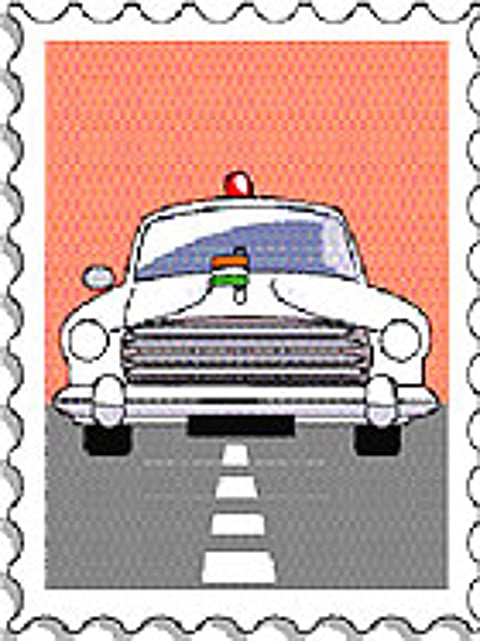For Whom The Polls Toll
Delhi Diary
For all the accumulated wisdom, all you get by way of an answer as to what’s in store in the five assembly elections is blah, blah, blah and blather.

Access is the holy grail that the hack pack in the capital’s political ghetto chases—or thinks it has found. Editors recount how many samosas they have had with prime ministers, down to the last chickpea. Anchors are on first-name terms with all but the Pope’s alleged moll. And reporters have the “inside story”—all the news you can’t print. Yet, for all the accumulated wisdom, all you get by way of an answer as to what’s in store in the five assembly elections is blah, blah, blah and blather.
Maybe, this is as it should be. “Scotty” Reston, the legendary New York Times editor, wrote after covering an Indian poll that “an election is a voter’s secret communion with democracy; it is sacrilege to peep in”. Still, it is difficult to believe if anodyne arithmetic loaded with IFS, buts and howevers is all our “Monday Morning Quarterbacks” can serve up to explain what is happening. Admittedly, the Election Commission has taken the life out of what used to be our most colourful festival; each big poll is now just a sum of several small, localised ones that are superficially clean.
One reason for this post-facto analysis is that journalists are even more invisible on the ground than elected reps at peacetime, parachuting into the hurly-burly only when the model code kicks in. But if, in 21st century India, election reporting still has not gone beyond counting voters like sheep, it should explain why three of the four main contenders in UP are being looked at as kingmakers rather than as kings—and why two queens and a princeling can safely go through test after electoral test without meeting the media and with a bulletproof glass sheet always in between.
The Drowning Glory
Twenty years after the reforms began, the jury is still out on whether the glass is half full for the 1 per cent or half empty for the other 99 per cent. Even the carpers had conceded that if nothing good had come of it, liberalisation’s two shining successes were aviation and telecom. It was cheaper to fly, cheaper to talk. But the velocity with which those sectors have plummeted in recent months—the Supreme Court ruling in the 2G spectrum scam being the penultimate slap—provides an apt and, some would say, sad bookend for two decades of Manmohan Singh’s career as politician.
Tongue in cheek, you could argue that the latest slight is proof that those who live by lawyers are destined to die by them. But the sight of Kingfisher airlines first begging for a bailout and then urging state governments to buy seats to stay afloat should convince even the most ardent admirer that somewhere along the way, the L-word had really become about privatising profits and socialising losses with the customer hanging in mid-air.
For months, meals have gone mysteriously missing on the full-cost airline due to “technical reasons”; in-flight entertainment systems summarily switched off. Last month, yours truly booked himself on a Kingfisher flight to Hyderabad. Within two hours of the reservation, the flight was rescheduled; a week later, it was cancelled—and all this three weeks in advance of the journey.
Rare Is The Word
In an Oceania of banned books, essays, plays, movies, documentaries, art shows, TV skits and websites that even George Orwell had not foreseen in the land of his birth, light can come from the most unexpected source. And an excitable stockbroker is unwittingly showing more empathy for the spirit of Article 19 (1) (a) in the not-so-Brave New World of the Republic than most lit-pests between Jaipur and Calcutta put together.
India’s 42nd richest man, it appears, has a slightly more evolved sense of humour than all those thin-skinned, super-sensitive souls with a legal notice in their hip pockets. Someone publishes a secret journal, pushes out tweets, gives quotes and interviews—complete with a mugshot with horns stuck on it. One newspaper publishes a column in his name; one editor happily misquotes him. It’s probably because he has attained ‘omni-god’ status that he hasn’t taken offence at being so parodied, and rare is the eye that doesn’t light up when the words “I have arrived” appear on Twitter.
Rakesh Jhunjhunwala, take a bow.
Shot In The Ed
In 1936, a young man who dreamed of editing a magazine sought advice from H.L. Mencken, who had founded and edited his own title in the 1920s.
Mencken wrote back: “I note what you say about your aspiration to edit a magazine. I am sending you by this mail a six-chambered revolver. Load it and fire every one into your head. You will thank me after you get to hell and learn from other editors there how dreadful their job was on earth.”
Krishna Prasad is Editor-in-Chief, Outlook. Follow him on Twitter @churumuri
Tags